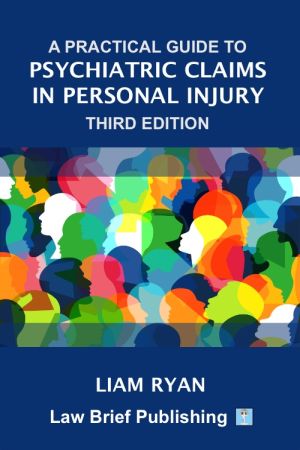
As scientific knowledge and research in psychiatry continues to develop, and recognise a growing number of diagnosable psychiatric disorders, the law governing such claims has become increasingly complex and, at times, labyrinthian.
This textbook seeks to demystify the complex legal framework that surrounds psychiatric injury claims by providing clear and accessible explanations of the governing legal principles, together with practical guidance. It examines the principles governing psychiatric injury claims, including diagnosis, duties of care, foreseeability, causation, and the distinctions between primary and secondary victims. The book also covers claims arising from workplace stress, intentional acts and the differing methods and approaches that can be taken when quantifying damages.
Whether you are a legal professional, academic, or student, this book is designed to be an indispensable resource for anyone navigating the complexities of psychiatric injury claims, providing an accessible insight into the ever evolving intersection of law and mental health.